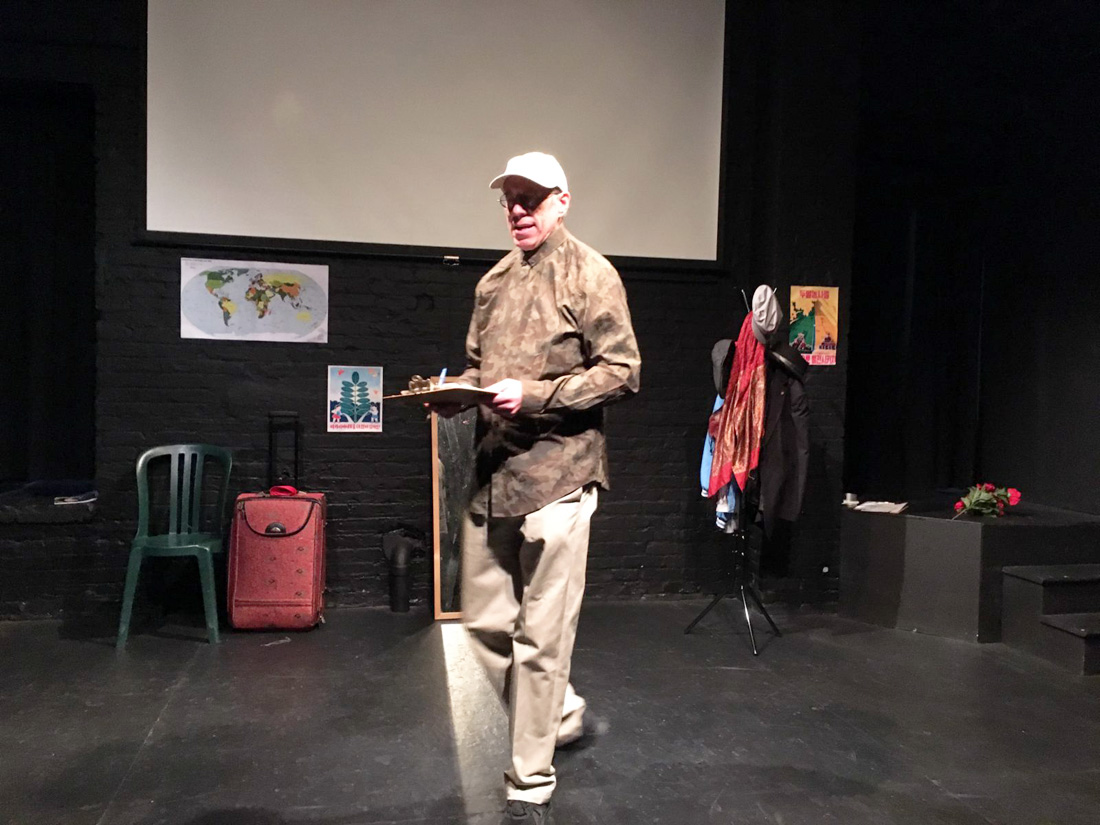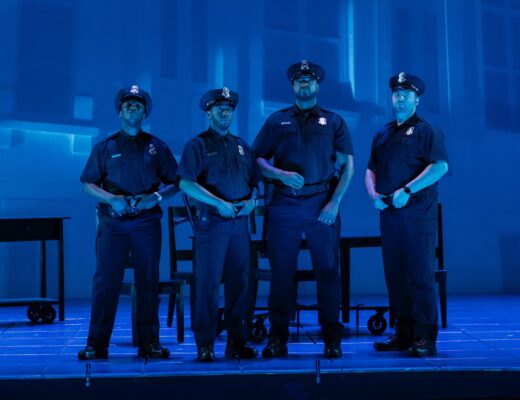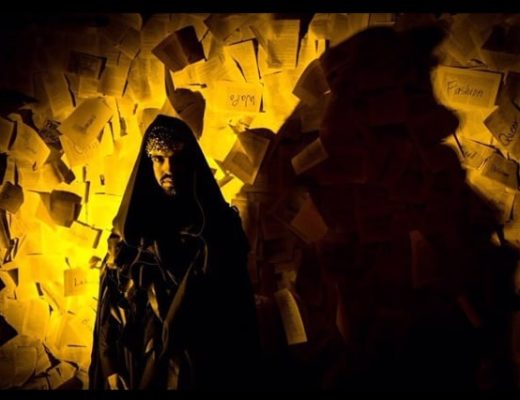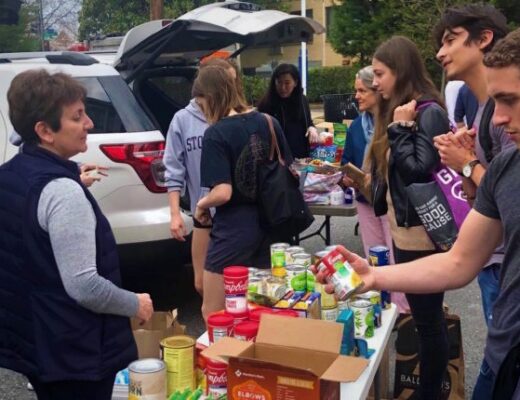This article was first published in DC Theatre Scene here.
Few foreign lands loom larger in the American imagination than North Korea, despite and because the average outsider knows almost nothing about the country. We’re in the dark by design: the U.S. restricts and currently bans tourist travel, the North Korean Central News Agency emits pure propaganda every day, and our countries’ diplomatic communications are tenuous at best.
Playwright, performer, and foreign policy scholar John Feffer’s new one-man show aims to bring the audience “as close to North Korea as you can get without a visa.” What a tantalizing proposition. It’s also too tall an order for any play devised by one American man, however extensive his expertise may be. Instead of giving me new access and insights into the country, Next Stop: North Korea made me feel the limitations of my understanding more acutely. Not what the playbill advertises, but perhaps the show’s principal achievement.
Feffer made three trips to Pyongyang and surrounding areas when working for the American Friends Service Committee in the late 1990s and 2000s, not long after North Korea’s infamous four-year famine. The plot of the play is framed by his own story: his observations, ethical dilemmas, and frustrated efforts to provide resources to local agriculture collectives and establish a variety of Korean-American exchanges.
Into his personal narrative, he interweaves scenes featuring a cast of locals he encounters along the way. We meet a Juche tower tour guide, a woman who has memorized all of Kate Winslet’s lines in Titanic and speaks impeccable English, but espouses fiercely patriotic rhetoric. There is the minder, a government official who guides Feffer on his tour of North Korea and is assigned to surveil his every move, who performs a peculiarly dissonant rendition of “You Are My Sunshine” as Kim Il Sung’s image is projected behind him. We hear from a driver who has chosen to stay put in North Korea after considering the possibility of opening up a cold noodle shop across the southern border, and a defector who both decries his country’s human rights abuses and feels nostalgic for home.
The most interesting moments in these character vignettes are when they make us question how the performances with which we are presented align with the true feelings of the speakers. The Juche tower guide spews anti-American vitriol and never strays from the strictures of the regime’s party line. However, the Titanic dialogue she chooses to recite to demonstrate her love of the movie suggests we may be overlooking signs of a distress she is afraid to voice: “I feel I’m standing in the middle of a crowded room, screaming at the top of my lungs, and no one even looks up.”
How much of the news we get about North Korea is reality, and how much is a show? What do we fail to understand about the country and its people because its government deliberately conceals information from outsiders–and what do we fail to understand simply because of the depth of the cultural gulf between us? In 2017, Evan Osnos was permitted to visit Pyongyang for a New Yorkerstory, one of very few journalists invited for an official tour including interviews with government officials. Reflecting on what it means to report on a carefully constructed tour of an authoritarian country, Osnos wrote, “the experience is less akin to normal foreign correspondence than to theatre criticism…Proving it to be theatre is beside the point; we already know that. It is difficult and important enough just to describe the show with fidelity and detail.”
Feffer’s play gives us detail: He describes the sights, sounds, and textures of the mausoleum housing Kim Il Sung’s embalmed body. He contrasts the gritty rice and bony chicken he shares with farmers in the countryside with the spread at a banquet the government requires him to attend. As for fidelity, it’s a fairer standard for journalism than for art. Mostly, Feffer sticks to the facts in depicting his own experiences, occasionally rearranging the timeline of conversations and encounters to suit narrative flow. Some of the other characters, he said in a talk-back following the performance, are modeled closely on individuals he has met or interviewed, while others were more imaginatively constructed.
Feffer has written the characters’ monologues with distinctive voices and performs them with impressively varied energies, from the jittery Juche Tower guide to the rigid minder to the easygoing driver. However, it is important for the audience to remember that the show does not “[introduce us] to four North Koreans,” as Feffer suggests in his preview, but to four characters reconstituted from Feffer’s memory of the limited portion of the North Korean population he was able to meet, individuals who were no doubt performing the versions of themselves that were safest for them to enact in his presence.
This performative layering, this distance, is the natural limitation of an American-made play about North Korea. It’s also fascinating in its own right. As long as we approach Next Stop: North Korea as a spark for more nuanced questions about Korea and the U.S. relationship to the country, not as a key to understanding its people, this is a useful and timely production.
Next Stop: North Korea also features nightly talk-backs with Feffer and different Korea experts. The show I attended included Dr. Immanuel Kim, a professor at George Washington University whose latest book looks at the honest depiction of social issues in North Korean literature.





No Comments